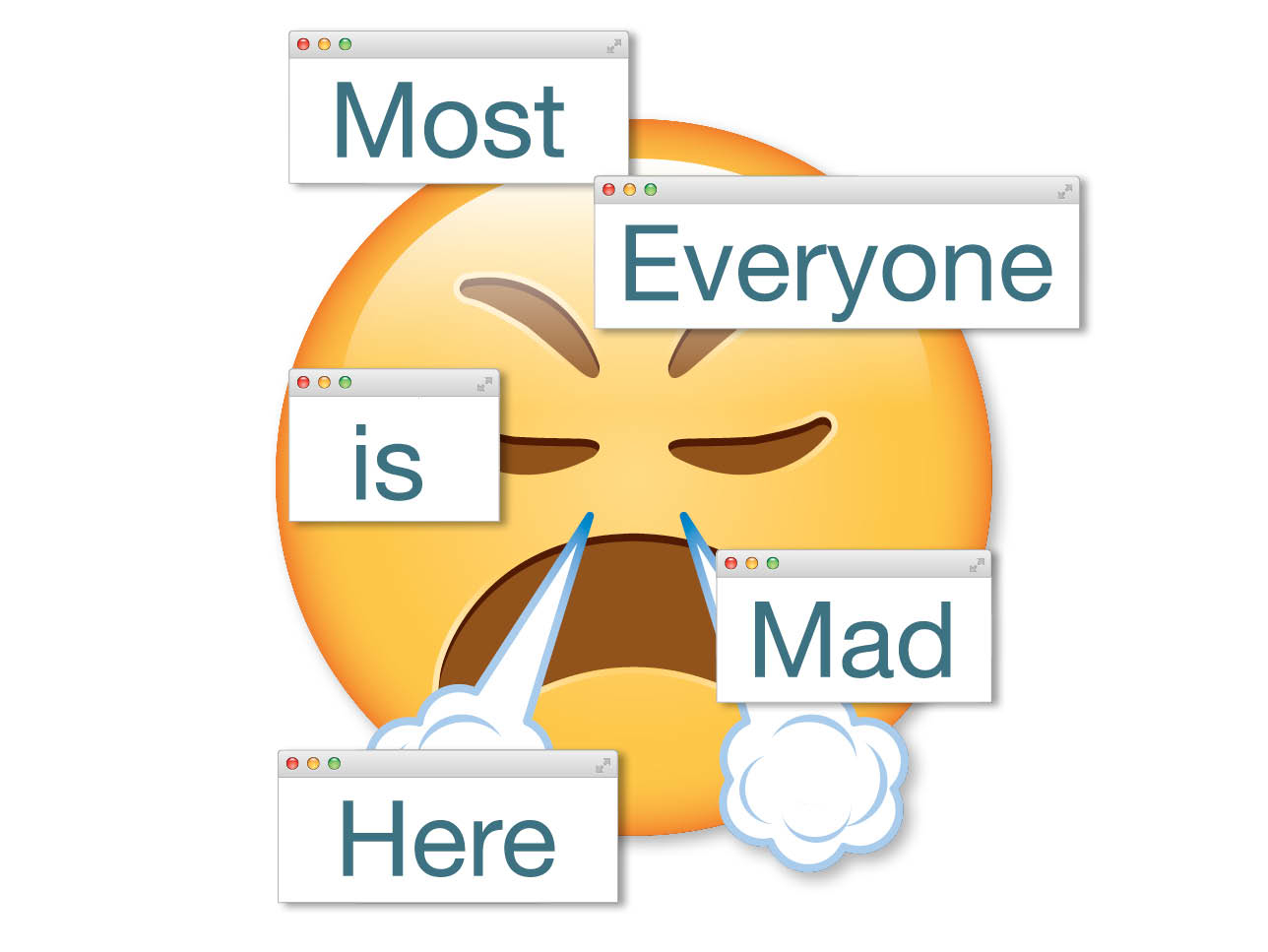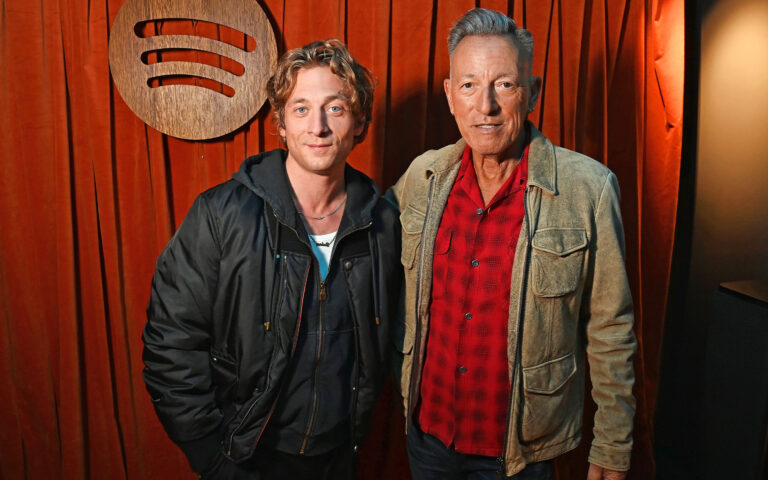Saturday, September 13, by complete happenstance Justin Trudeau, the closest thing Canada has to a political celebrity, thanks in equal parts to his parentage and his handsomeness, came upon a wedding group photo at the Hilton hotel in Markham, Ontario. Famous politician that he is, he was asked by the photographer and by the bridal party if he wouldn’t mind posing with them for a few shots. In one picture, he is kissing the bride on the cheek.
When the innocuous photos came to light, Sun News performer Ezra Levant saw raw meat for his viewers and pounced. The United States has Fox News, which is not only the most-watched television network in the nation, but a dependable source of manufactured scandal and outrage. In Canada, well, we have Ezra Levant on the Sun News Network, not usually as bloviating as your O’Reilly’s or Beck, but still not necessarily a fan of nuance. He hinted darkly at what he claimed was the Liberal leader’s smug sense of entitlement (“The idea of the nobleman of the estate, riding through like in medieval times to deflower whatever maidens he wanted, that’s still there in Trudeau,” Levant gushed) and then took aim at both Trudeau’s father, the late Prime Minister Pierre Elliot Trudeau, and the Liberal leader’s 66-year old mother, employing the sort of sexual slurs usually reserved for use among teenage boys on a city bus.
In short order, Levant (who refers to himself on his website without irony as “Canada’s foremost freedom fighter”) ended up getting exactly what he wanted: many Canadians were outraged.
Though Levant’s handful of devotees were made angry for the reasons he intended, mostly it was typical liberal Canadian outrage of the Aren’t we better than this?! variety, and it only lasted about a week.
The tackiness of it all cut a bit too close to the bone for those of us who like to think Canadian media should be above the US cable news outrage-mongering sewage pumped out by Fox News and its ilk, who were just then beginning to work the US into the latest iteration of its patented add-a-bead paranoia and outrage—this time over how Ebola was basically President Obama’s fault.
In the immediate aftermath, Trudeau announced that he was banning Sun News journalists from his press conferences until Sun News apologized for Levant’s creepy five minute meltdown. They did.
For his part, Levant’s own comments were, more or less, “No comment.” He’d apparently accomplished exactly what he set out to accomplish, and had done so with a trollish épater le bourgeois score-settling instinct that would be familiar to any former high school nerd who hasn’t gotten the taste of all the swirlies he received at the hands of the jocks out of his mouth.
In short, he’d hit his target: he’d outraged, he’d offended, he’d click-baited and he’d attracted some media coverage for his Sun TV cable show, then scampered off to giggle behind his fingers and enjoy the fallout.
Even though I knew Levant’s outrage was calculated and transparent, I nonetheless found myself irresistibly drawn into heated online discussions with a handful of Levant’s followers. Maybe discussion is an overly generous term. It didn’t occur to me at the time that in doing so I had become part of Levant’s self-generating outrage machine. It was just something that I—that we—needed to do: someone was wrong on the Internet, and we were right.
By the time this is published, very few people will remember the Levant vs. Trudeau dustup without a prompt or two. Hell, at the time of this writing it’s nearly forgotten. But that’s exactly the point: we read a headline, an article, a tweet, are filled with righteous indignation, and blast our opinion into the ether. We feel momentarily satisfied, then check back to see if our comment has inspired any attaboys from our fellows or, perhaps, an outraged response of its own. And so the cycle continues.
For better of for worse, in one way or another these daily draughts of outrage, in wildly varying dosages, are now a part of the culture. Since we ourselves are obligatorily part of the culture, outrage is now part of us. We don’t question it, we don’t stop to think about why we’re part of it, or how we might escape it, let alone any of the reasons why perhaps we should.
As is the case for most of us, my laptop (and increasingly, the screen of my phone) is as much my window to the outside world as any window in my house. Of late, between the ISIS massacres, Ebola, global warming, the erosion of women’s reproductive rights in the United States, generic racism, animal cruelty, the pushback against LGBT equality, the increasing visibility of police brutality and the taken-for granted reality of a near-permanent state of war, I’ve absorbed more bad news via my homepage before I’ve finished my coffee than my parents’ generation ever did in a week of newspaper reading and eleven o’clock news-watching.
Unlike my younger colleagues who have never known a pre-Internet world, I have a conscious memory of not starting my day with bad news, which usually results in irritation, anger, or anger’s most bellicose cousin, outrage.
That’s before I even check my Facebook and Twitter pages, where most of these stories have already been distilled and disseminated, sometimes with astute, intelligent contextualization and sometimes not, by friends, colleagues and strangers. With the engine running, I usually click “share” and join the outrage machine myself, passively, or with humour, or with reflexive, smug superiority, or with anger, but always with a sense of mission.
Like my response to the news that D-list has-been actor Kirk Cameron was campaigning to reclaim Halloween for the Lord: “Jesus wants Kirk Cameron to get a fucking life and stop embarrassing Him at parties.”
Thus, the modern day begins. Both sides forcefully asserting the correctness of their point of view in whatever comment section the story ran; every participant shocked that someone could even entertain the position opposing their own. Didn’t they read the same news story as me? Haven’t they googled what I’ve googled?
In fact, no, they probably haven’t.
While the Internet has given voice to anyone with a keyboard, it’s also become a filter—a means of only hearing the voices we think we want to hear. So much of what we see and read is based on mysterious algorithms, sifting through our search history, our friends, our allegiances, that the news we consume often comes as tailored to our tastes as a drive-through hamburger and, most often, is just as nutritious.
Biologically speaking, the spectrum of emotions comprising anger and outrage are governed and stimulated in part by the amygdala, a cluster of almond-shaped nuclei located in the temporal lobes of the brain, the same nuclei that stimulates the fight-or-flight reaction to danger. One of the fundamental triggers of anger is fear. Even on the Internet.
Fear, in this context, is not limited to fear for one’s own well-being or the well-being of loved ones. It also encompasses fear of personal humiliation, fear of the sanctity of one’s own personal boundaries being breached to one’s own self-esteem, even fear of a disruption of the acceptable moral social order as one experiences it, including, maybe especially, through abuses of power by those with power to abuse.
Some years back, I covered the true crime story of a 17-month-old baby who was beaten to death by his mother’s live-in boyfriend because the man perceived the child had been acting “too feminine.”
To my mind, the murderer was not the only monster in the story—or, at least, he wasn’t the part of the story that instilled the most fear in me. The other monster was the insane societally supported logic that informed the man’s lethal prejudices. Over the years, I’ve covered numerous stories about the abuse of power, but that one haunts me even today.
Interestingly, it’s rarely the explicit villain of a story who sparks outrage—it’s what those villains represent to the ones reading it. After Elliot Rodger went on his rampage last summer, killing six people and injuring 13 as a punishment for not getting laid, despite being a “nice guy,” thus becoming the latest mass shooter to steal the media’s spotlight, outrage wasn’t directed at him—that he was a monster was a given, something everyone could agree on. What scared the commentariat more was the context. And while Matt Walsh, the popular right-wing religious blogger, and any given feminist Jezebel writer, might settle on different flavours of outrage—one decrying the obvious misogyny at work, the other the attention other writers seemed to be giving a murderer—fear was still at the heart of their vitriol. The one inevitable commonality is the anger that comes with an inexorable awareness that the world is not as we feel it should be.
In writing the story of that murdered baby, in sharing it, I was able offer it up for judgment, to extend an implicit invitation to readers to share my horror.
That, in a nutshell, is the engine that drives outrage culture, which in turn, drives the Internet in a vicious feedback loop. It makes sense that, through the web, we see more of the world, and thus have so many more opportunities to have reality crash into our expectations. In the positive sense, it can lead to a drive for social, political, or moral change. Or it can lead to a generalized, daily, seething cynicism that can be debilitating, not only for those experiencing it, but also for the people around them.
But if fear, and the resulting outrage, is unpleasant, why are we drawn to sharing bad news on social media? And more upsetting, why do we have the apparent in inability to distinguish between “legitimate” sources of outrage—at random, the Ferguson riots, for instance, or the murder of journalists in Syria or this past summer’s Israel vs. Gaza conflict, all of which legitimately correlate to the very real condition of the world—as opposed to the various personal carryings-on and foibles of celebrities, or how “privileged” Gwyneth Paltrow is or how trashy the Kardashian sisters are, or the apparently devastating ethical implications of President Obama wearing a tan suit for a White House briefing? Or, for that matter, Ezra Levant calling Pierre Elliott Trudeau a “slut” on television? Because there is a difference. There has to be.
It turns out it’s more about identity than morality.
“Outrage allows people to show their opinions. To express their identity. Even if everyone is against something, sharing that outrage allows us to come together and make it clear that our side or viewpoint is the right way to see things,” says Jonah Berger, New York Times bestselling author of Contagious: Why Things Catch On. “These emotions fire us up and drive us to take action.”
But that action is so often stunted, forgettable. Remember KONY 2012? #Bringbackourgirls? Any number of outrageous celebrity-backed causes that fell out of news cycles after a week, or month?
We’ve moved beyond our fundamental, reflexive human impulse to be naturally outraged and are now actively seeking outrage out and consuming it like any other commercial product. We’re addicted to it.
And that addiction is made more powerful because we’ve attached a universal moral value to outrage for its own sake, whatever its actual cause or merits, as if all indignation was righteous. Critical thinking, in these cases, is often optional.
We’re making it worse, even as we try to make it better. Look, for instance, at the rise of “trigger warnings.” For those not in the know, a trigger warning is the grown-up equivalent to a parental advisory label; whatever proceeds might disturb the person consuming it or trigger a traumatic memory, often of violence or sexual assault, but also racism, homophobia or a plethora of other less easily quantifiable potential “emotional aggressions.”
Trigger warnings make perfect sense in, say, feminist, African-American or LGBT-primary spaces and blogs. But now, university professors have been asked to post them for required reading and lectures. The problem with trigger warnings in general use is that they colour the experience, pushing the consumer/reader toward outrage. If one is told there will be offensive content, one can’t help look for it, ignoring context and intention. They oil up the outrage machinery, even while trying to mitigate negative reactions.
The problem with outrage as a means of social change, whether you’re looking to oust a president you believe is “not a real American” (#Benghazi) or protect the rights of female video-game designers to not receive rape threats (#gamergate), is that, as both consumers and purveyors of outrage, both professional and amateur commentators are as likely to swarm for personal reasons as they are for those of the objective, popular good. Because it’s about identity, outrage and hypocrisy tend to go hand in hand. We see great injustices, and what do we do? We troll other online trolls, instead of actually engaging in real work. “It’s entertainment disguised as activism,” says LA filmmaker Andrea James, who has written extensively on Internet outrage culture. “It makes them feel important and superior, but it rarely does much to address the underlying causes of iniquity. Outrage culture is the bastard child of Internet culture and consumer culture. It exists because a wide swath of people wants to feel like they’re making a difference with the least amount of effort.”
My friend’s father has a saying. He doesn’t know where his father got it, but he doesn’t think he made it up: “Many a man prides himself on his virtue, when it is merely a lack of opportunity.”
That saying comes to mind when I consider how comparable outrage might have been experienced by generations past. If there was less outrage then, it was because previous generations didn’t have the means to express that outrage as openly and universally as the current generation does. It was judiciously considered and its merit weighed. Our parents might have written a letter to the editor, placed it in an envelope, licked the stamp, dropped it in a mailbox, and then sat back to see if it would be published. And, even then, that would be the end of it. The paradigm shift that birthed outrage culture wasn’t just the immediacy with which we can register our horror, it was that we can—and are encouraged—to comment on the comments on the comments. It’s dialogue: engagement, it’s called. And it’s as flammable in its way as an accidentally-dropped cigarette butt in the California forest in wildfire season.
While we are without a doubt better informed than our parents’ generation ever could have dreamed of being, the nagging question is, what do we do with all that information? What’s the purpose of having it? And at what point does all the bad news—and the outrage it engenders, coupled with our inability to effectively address it—simply become emotionally toxic, the spiritual equivalent of lactic acid buildup? Is there any point to being outraged any more?
For better or for worse, in addition to the stories I tell for a living, I maintain a daily running dialogue with thousands of strangers, usually but not always in an echo chamber of shared political and/or moral perspectives. I’d like to think I bring a curatorial eye to the stories I share and comment on during my morning cull of the day’s news, but I’m nonetheless feeding the fire of the outrage machine by doing so.
So, the question becomes, why? Why do it? What’s it about? The answer is, I don’t know why.
At its most redemptive level, the level I personally value, social media outrage is an effective tool for shining a light on injustice, and shaming that invisible monster in hopes that, at some point, the scrutiny and resulting shame becomes unbearable to the perpetrator. But Joseph Kony didn’t particularly care what the Internet said about him. Neither does Ezra Levant. They continue to do what they do, supported by those who supported them before, and unimpeded by the outpouring of likes and hashtags and vitriolic online comments.
At its least redemptive level outrage is the insensate gibbering of emotionally ravenous, outraged strangers who are desperate—desperate—to feel something, anything, to connect, to not feel alone. The irony of feeling alone in a vortex of billions of virtual voices all shouting at once is nothing if not the quintessential paradox of the modern media age.
In the same way that you won’t likely ever get Ebola, or effect political outcomes in any other way than by voting, the pernicious lure of outrage culture as is that it provides a temporary emotional fix disguised as action and participation. The long term net effect is not more immersion in the business of life, but potentially less, because after a while the real-est window isn’t the one to the actual world outside, it’s the one that opens when you log on. Sorting through the outrage to separate the noise from what’s real is the key.
The ability to maintain perspective, one of the oldest and most valuable lessons we learn in life, could be the one most quickly lost when we suddenly realize we’re angry all the time, but can’t for the life of us remember why.
Michael Rowe’s second novel Wild Fell was a finalist for the 2013 Shirley Jackson Award, and will be published in French by Editions Bragelonne in Paris in 2015



